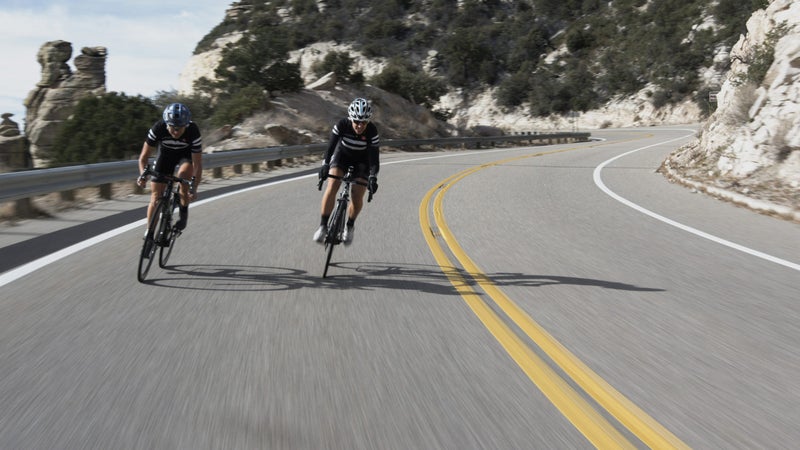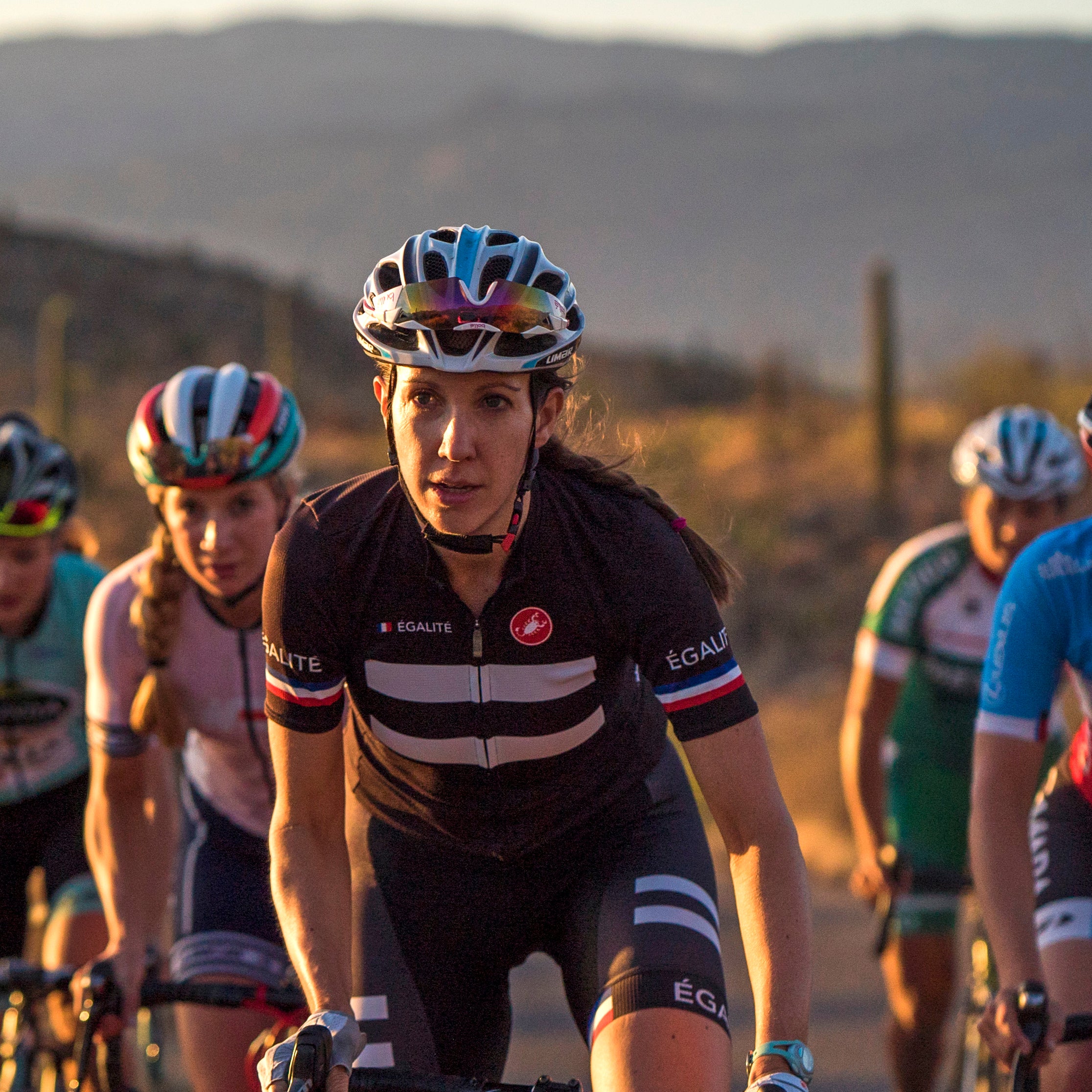When Kathryn Bertine first moved to 20 years ago from New York, the plan was to get her master’s degree and then head back East to start her career. But something got in the way of those plans: she took a bike ride. “Everything was planned out in my 23-year-old brain,” she says. “But life did a wonderful thing and took a different turn.”
Seeing Tucson and the surrounding from the saddle was an eye-opener. The pace of life, the closeness of nature, and the openness of the community all became even more apparent on her daily rides. “Cycling really gave me this amazing gift of being able to see Tucson—and all of Arizona, really—from a unique perspective,” she says.
She also loved the competitive aspect. A former Division I rower and pro figure skater, she soon began competing in triathlons, including three years as a pro, before becoming a pro cyclist at the age of 31. A nasty crash cut her career short, which allowed her to focus on another project during her time in the desert: her passion to bring parity to women’s professional road cycling.
Cycling really gave me this amazing gift of being able to see Tucson—and all of Arizona, really—from a unique perspective
Male competitors often receive a base salary or sponsorship deals that allow them to train the majority of the time. Female endurance athletes, on the other hand, often get paid a fraction as much and have to find ways to supplement their income. To help change that situation, Bertine directed a feature documentary in 2014 called “Half the Road,” which explored the issues and inequalities in women’s cycling. She also co-founded Le Tour Entier, a group that succeeded in getting women into the Tour de France in 2014. Then, in 2017, she launched the in Tucson, an organization that advocates for gender equality in sports and also offers training residencies for elite and professional-level athletes who can live there for free while pursuing their goals.
Athletes from around the nation and the world come to Homestretch for one to six months to train and learn from one another. And while the camaraderie is a big part of Homestretch, Bertine says just being in Tucson is a major element, too. “It feels good and it feels like home to our residents,” she says. “We’re right down the road from Mount Lemmon, Saguaro Park, the famous Saturday Shootout Group ride. It’s not just about warmth and sunshine. Being here offers something beautiful.”

In fact, so far she says more than half of Homestretch’s attendees have already reapplied to return to Arizona. Tucson, she says, is an ideal setting for elite athletes, especially cyclists. “We’ve got something for every type of rider, whether you’re a climber or a sprinter or a GC specialist in road racing,” says Bertine. “And we’ve got Mount Lemmon, which is an amazing 9,000-foot climb that goes through just about every ecosystem possible, from desert to tundra. It’s an extraordinary training tool.”
But hardcore training isn’t Tucson’s only, or even its main, draw. Bertine says the open nature of Arizona’s cycling culture is one reason she will likely call the place home for the rest of her life. “You see this vast demographic in Tucson’s cycling culture, with people from all walks of life out biking on the paths and roads. I love that.”
To plan a trip to Tucson or one of Arizona’s other outdoor destinations, go to .

